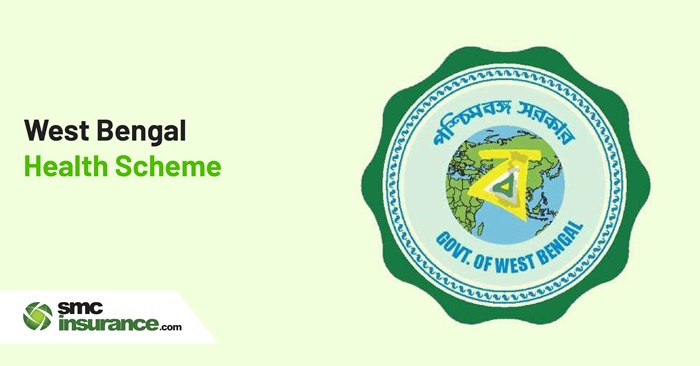
The West Bengal Health Scheme (WBHS) is a flagship healthcare initiative launched by the Government of West Bengal to provide robust health coverage to government employees, pensioners, and their dependents. This comprehensive health scheme ensures access to quality healthcare services across a range of treatments and procedures. Let’s dive into the details of the West Bengal Health Scheme, including its benefits, eligibility, enrollment process, and claims process.
Key Highlights of the West Bengal Health Scheme
- Scheme Name: West Bengal Health Scheme (WBHS)
- Launched By: Government of West Bengal
- Primary Beneficiaries: Government employees, pensioners, and their dependents
- Coverage: Cashless and reimbursement-based coverage for a wide array of medical treatments
- Network Hospitals: Empaneled hospitals across the state for quality treatment
- Claim Types: Both cashless and reimbursement-based claims
Eligibility Criteria for the West Bengal Health Scheme

To benefit from the WBHS, certain eligibility conditions must be met. The scheme aims to cover the following individuals:
- Government Employees: All permanent state government employees are eligible.
- Pensioners: Retired state government employees can also avail of this scheme.
- Dependents:
- Legal dependents of government employees and pensioners.
- Spouse, children up to a certain age, and dependent parents are usually covered.
Enrollment Process for the West Bengal Health Scheme
Eligible employees and pensioners need to follow a systematic enrollment process:
- Form Submission:
- Employees must fill out Form A for themselves and their dependents.
- Pensioners must fill out Form B.
- Submit Documents:
- ID proof, address proof, and other relevant documents may be required.
- Department Approval: The respective department verifies and approves applications.
- Enrollment Card:
- Upon approval, the beneficiary receives a Health Scheme Card, which is required at the time of treatment for identification and claim purposes.
Coverage and Benefits Under the West Bengal Health Scheme
The WBHS provides extensive coverage, focusing on a wide range of health services:
- In-Patient Department (IPD) Treatments:
- Covers hospital admission costs, surgeries, and major treatments.
- Out-Patient Department (OPD) Benefits:
- Limited to certain chronic and life-threatening conditions; includes reimbursement for consultations and prescribed medicines.
- Cashless and Reimbursement-Based Treatment:
- Cashless: Beneficiaries can avail of cashless treatment at empaneled hospitals.
- Reimbursement: If treated in a non-empaneled hospital, claims are reimbursed based on scheme limits.
- Diagnostic Procedures:
- Covers costs of X-rays, MRIs, CT scans, and other diagnostic tests required for treatment.
- Post-Hospitalization Care:
- Medical expenses incurred within 30 days post-discharge are covered, including follow-up tests and prescribed medicines.
Empaneled Hospitals Under the West Bengal Health Scheme
WBHS has a network of empaneled hospitals where beneficiaries can avail of cashless treatment:
- Private Hospitals:
- Renowned private hospitals with advanced treatment facilities are part of the network.
- Government Hospitals:
- State and central government hospitals are empaneled for both cashless and reimbursement claims.
Beneficiaries can access the list of empaneled hospitals through the official WBHS website or from their respective departments.
Claim Process Under the West Bengal Health Scheme
The WBHS offers a seamless claim process, whether opting for cashless treatment at an empaneled hospital or reimbursement claims. Here’s a breakdown:
Cashless Treatment Process
- Pre-Authorization:
- For planned treatments, beneficiaries must submit a request for pre-authorization to the concerned hospital’s TPA (Third Party Administrator).
- Verification and Approval:
- The TPA verifies eligibility and pre-approves treatment expenses within scheme limits.
- Treatment:
- Once approved, the beneficiary can receive treatment without paying upfront at the empaneled hospital.
Reimbursement Claims Process
- Submit Claim Application:
- Submit a reimbursement claim form along with all treatment-related documents (hospital bills, discharge summary, prescriptions).
- Claim Review:
- The concerned department reviews and verifies the claim.
- Reimbursement:
- Upon approval, the claimed amount is reimbursed based on WBHS terms and conditions.
Advantages of the West Bengal Health Scheme
The WBHS offers numerous advantages to eligible beneficiaries:
- Financial Security:
- Protects beneficiaries from high medical expenses with both cashless and reimbursement options.
- Extensive Network of Hospitals:
- Allows access to top healthcare facilities across the state.
- Coverage of Major Treatments:
- Provides coverage for critical illnesses, surgeries, and chronic diseases.
- Simplified Claim Process:
- Ensures quick claims settlement for both cashless and reimbursement options.
Documents Required for Claiming Benefits
To make a claim under the WBHS, beneficiaries must submit specific documents:
- Duly filled claim form (Form C for reimbursement claims)
- Health card or WBHS enrollment card
- Medical and hospital bills with the treating doctor’s notes
- Discharge summary and diagnostic test reports
- Prescriptions and medicine bills for post-hospitalization care
Renewal and Continuation of Coverage
The WBHS requires regular updates for seamless benefits, particularly in cases of family status changes or address updates:
- Renewal Process:
- Government employees must inform their departments of any change in dependents or other details for updating their coverage.
- Updating Health Cards:
- Beneficiaries must ensure their health cards are valid and updated, especially for adding new dependents or after the death of a primary member.
- Continuity for Pensioners:
- Pensioners must keep their enrollment valid by adhering to any updates or verification processes requested by their department.
How to Check WBHS Enrollment Status and Hospital Network

Beneficiaries can check their enrollment status and locate empaneled hospitals by:
- Official Website:
- Visit the official WBHS portal for the latest updates on hospitals, coverage, and eligibility.
- Department Inquiries:
- Reach out to the respective government department for support on the scheme.
FAQs: Common Questions About the West Bengal Health Scheme
Q: What is the maximum coverage limit for treatments under WBHS?
A: WBHS has defined limits for different treatments and services. Beneficiaries should refer to the WBHS guidelines or consult their department for specific details.
Q: Can dependents of a government employee use the WBHS for medical treatment?
A: Yes, eligible dependents, such as spouses, children, and dependent parents, can avail of medical treatment under WBHS.
Q: How can I find the list of empaneled hospitals under WBHS?
A: The list is available on the official WBHS website or from respective departments.
West Bengal Health Scheme – A Lifeline for Government Employees
The West Bengal Health Scheme offers a valuable safety net for government employees, pensioners, and their dependents, ensuring they have access to quality healthcare services without financial strain. With comprehensive coverage, a wide network of empaneled hospitals, and an easy claims process, WBHS stands out as an essential scheme dedicated to the welfare of public servants in West Bengal. Whether you’re a government employee or a pensioner, this scheme offers peace of mind with reliable health coverage, making it a crucial aspect of healthcare for many families in the state.




